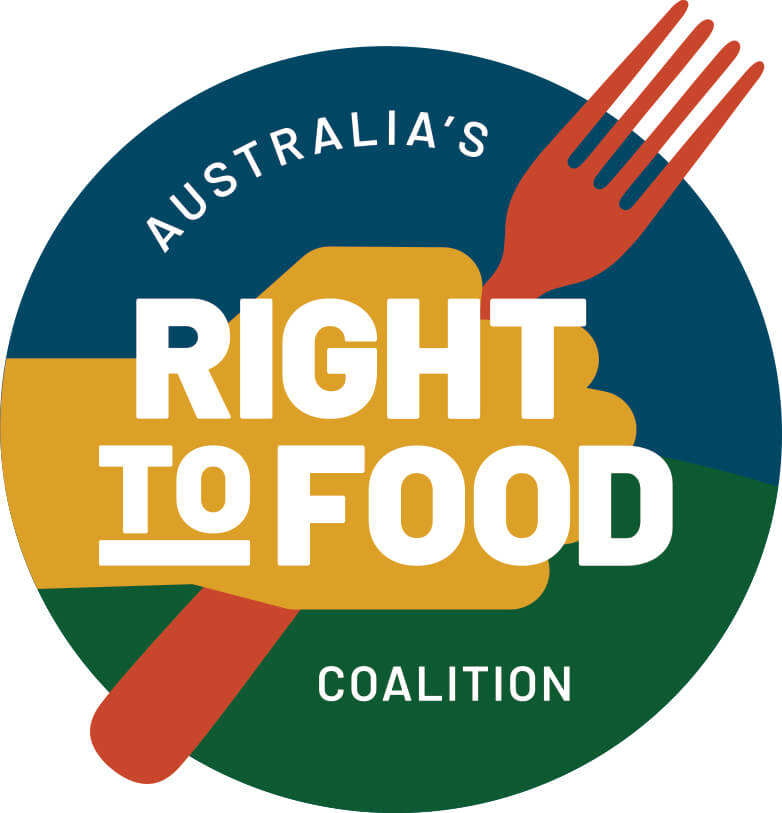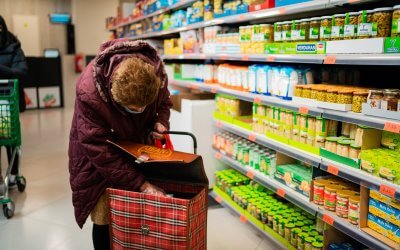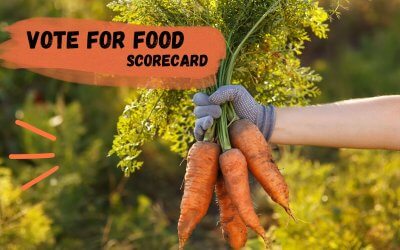This week is Refugee Week – an opportunity to celebrate the contribution refugees make to our society while recognising and acknowledging the many challenges that refugees face. One such challenge which is not widely recognised is the high rate of food insecurity amongst refugees and asylum seekers, and the impact this can have on their health and welfare. What do we know about food insecurity in these groups in Australia, and what can we do to ensure their right to food is realised?
Every year, millions of people are forced to flee their homes to find safety. Australia has accepted over 900 000 refugees under its Refugee and Humanitarian Program since the Second World War, with around 13 000 allocated places for 2021-2022.
A refugee flees their country due to fears of persecution, conflict or generalised violence and requires international protection. An asylum seeker is someone seeking international protection, but whose claim for refugee status has not been determined yet.
While immigration processes for refugees to enter Australia are complex, Australia is a signatory to the United Nations Convention Relating to the Status of Refugees, and has an obligation to protect the human rights of all refugees and asylum seekers in Australia.
Why is food insecurity in refugees and asylum seekers a concern?
Access to safe and nutritious food is a basic human right. A person is food secure when they have physical, social and economic access to food that is safe, adequate in both quantity and quality and culturally appropriate that allows for a healthy and active life. Food insecurity is an important social determinant of health and significantly impacts both short-term and long-term health. Food insecurity can result in inadequate nutritional intake with malnutrition and the risk of developing chronic diseases, such as diabetes, heart disease, obesity, depression and cancer.
The refugees’ and asylum seekers’ experiences of trauma and violence, displacement from their home country and loss of family and community support are risk factors for poor mental and physical health. Successful resettlement in their new countries is essential for improving health outcomes, with food security playing a significant role.
There is a high prevalence of food insecurity among resettled refugee and asylum seeker groups in high-income countries. Unfortunately, food insecurity is not routinely or optimally measured in Australia. Still, evidence from research studies suggests that the prevalence of food insecurity in refugees and asylum seekers was between 35% to 90%, with severe hunger levels experienced by 11% to 40% of the participants. This level of food insecurity is higher than the estimated level of 4% to 18% for the whole Australian population.
What factors increase the risk of food insecurity in refugees and asylum seekers?
While there are a limited number of research studies on food insecurity in refugees and asylum seekers in Australia, they provide us with much insight into the experiences of these groups.
Refugees and asylum seekers face many challenges when they arrive in a new country – poverty, unemployment, restrictive visa conditions, poor physical and mental health on arrival, and language and cultural barriers can all contribute.
In a high-income country such as Australia, there is a strong link between food insecurity and poverty. People on low or uncertain incomes and those relying on government income support payments are more likely to experience food insecurity as they struggle to balance the costs of daily living with purchasing food.
While refugees have the right to work in Australia, many struggle with finding employment. Many refugees have reported that the working skills they have brought with them are not easily transferable in Australia. Non-recognition of educational and professional qualifications and lack of working experience in Australia are further challenges to gaining employment. In addition, asylum seekers are on temporary visas, which often have work restrictions making finding work difficult.
Language barriers – with lack of proficiency in English – can be additional challenges to gaining employment. While refugees are entitled to 510 hours of free English lessons, many refugees, especially women with child-care responsibilities, cannot attend.
The money earned by refugees is often sent to their families back home, leaving little to purchase food.
Despite refugees being eligible for income support payments, such as JobSeeker and Parenting Payment, these payments are woefully inadequate to keep up with the rising costs of daily living in Australia. The situation is more difficult for asylum seekers on temporary visas and limited access to income support payments.
Navigating a new and foreign food environment poses a big challenge for refugees and asylum seekers. The limited availability and increased price of culturally familiar and traditional foods were found to be barriers for some African refugee groups. In addition, some Middle Eastern refugee groups reported difficulty obtaining Halal products. The unfamiliarity with Australian fruits and vegetables with limited knowledge of preparing them can lead to unhealthier dietary choices. The widespread availability of foods high in sugar and salt and their low cost can result in increased intake leading to unhealthier diets.
Distance and transport to shops are important factors in accessing food. Transport difficulties with carrying groceries over large distances or buying food from closer but more expensive food outlets all compound challenges accessing healthy foods. Refugees and asylum seekers often live in poorer neighbourhoods with decreased access to public transport.
Limited availability of cooking and storing facilities, and the high cost of utilities can also contribute to food insecurity, with food being seen as the ‘elastic’ part of the budget.
The associated stigma and shame of being unable to provide their family with food can result in refugees not admitting to food insecurity or refusing to use emergency relief agencies. As a result, the magnitude of food insecurity in these groups is likely to be underreported.
What can we do better?
While the Humanitarian Settlement Program assists refugees on particular visas for the first 6-12 months, it can be argued that this is insufficient time and assistance should be available beyond the first year. Policies and strategies that enhance education, training, language, employment, social support networks and community engagement for refugees and asylum seekers should be instituted. In addition, policies that increase income support payments to allow for the purchase of healthy foods are required.
There is also growing evidence of the value of supporting innovative programs that build on refugees’ skills and experience to develop small businesses and social enterprises. This work should be expanded.
A combination of these measures will help refugees and asylum seekers become food secure, integrate into society, develop a sense of belonging to their new country, reduce health inequalities and contribute fully to Australian society.
After escaping violence, persecution, and extreme trauma, it is unacceptable that refugees and asylum seekers should remain food insecure in a wealthy country like Australia.
Accessing safe, nutritious and culturally appropriate food is not a privilege – it is an essential human right. A right that every Australian – whether born or resettled here – deserves.
About the author
Lauren Resnik is part of Australia’s Right to Food Coalition communications team. She holds a Master of Science in Public Health Nutrition from the University of Chester, England and a Bachelor of Medicine and Surgery from the University of Witwatersrand , South Africa. She is passionate about health, nutrition and helping people live healthier lives.





